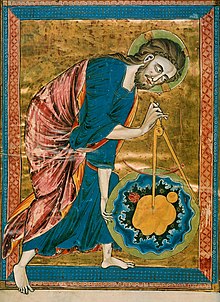
The relationship between science and the Catholic Church has been both collaborative and contentious throughout history. Historically, the Catholic Church has served as a major patron of the sciences, playing an influential role in the establishment and funding of educational institutions, universities, and hospitals. Many members of the clergy have actively contributed to scientific research. Some historians of science, such as Pierre Duhem, attribute the origins of modern science to medieval Catholic scholars like John Buridan, Nicole Oresme, and Roger Bacon.[1] However, the relationship has not been without conflict. Critics, including proponents of the conflict thesis, point to historical and contemporary tensions between the Church and science, such as the trial of Galileo, as examples of where the Church has opposed scientific findings that challenged its teachings. The Catholic Church, for its part, maintains that science and faith are complementary, as expressed in the Catechism of the Catholic Church, which addresses this relationship.
Catholic scientists, both religious and lay, have led scientific discovery in many fields.[2] From ancient times, Christian emphasis on practical charity gave rise to the development of systematic nursing and hospitals and the Church remains the single largest private provider of medical care and research facilities in the world.[3] Following the Fall of Rome, monasteries and convents remained bastions of scholarship in Western Europe and clergymen were the leading scholars of the age – studying nature, mathematics, and the motion of the stars (largely for religious purposes).[4] During the Middle Ages, the Church founded Europe's first universities, producing scholars like Robert Grosseteste, Albert the Great, Roger Bacon, and Thomas Aquinas, who helped establish the scientific method.[5]
Today almost all historians agree that Christianity (Catholicism as well Protestantism) moved many early-modem intellectuals to study nature systematically. Historians have also found that notions borrowed from Christian bellef found their ways into scientific discourse, with glorious results.
— Noah J. Efron[6]
During this period, the Church was also a major patron of engineering for the construction of elaborate cathedrals. Since the Renaissance, Catholic scientists have been credited as fathers of a diverse range of scientific fields: Nicolaus Copernicus (1473-1543) pioneered heliocentrism, René Descartes (1596-1650) father of analytical geometry and co-founder of modern philosophy, Jean-Baptiste Lamarck (1744-1829) prefigured the theory of evolution with Lamarckism, Friar Gregor Mendel (1822-1884) pioneered genetics, and Fr Georges Lemaître (1894-1966) proposed the Big Bang cosmological model.[7] The Society of Jesus has been particularly active, notably in astronomy; the Papacy and the Jesuits initially promoted the observations and studies of Galileo Galilei, until the latter was put on trial and forced to recant by the Roman inquisition. Church patronage of sciences continues through institutions like the Pontifical Academy of Sciences (a successor to the Accademia dei Lincei of 1603) and Vatican Observatory (a successor to the Gregorian Observatory of 1580).[8]
- ^ Wallace, William A. (1984). Prelude, Galileo and his Sources. The Heritage of the Collegio Romano in Galileo's Science. N.J.: Princeton University Press.
- ^ "Fathers of Science | Catholic Answers". www.catholic.com. Archived from the original on 12 April 2014. Retrieved 23 May 2017.
- ^ "Facts - Statistics". www.chausa.org. Retrieved 23 May 2017.
- ^ "Middle-Ages Science - Medieval Period - History of Science". Retrieved 23 May 2017.
- ^ Woods, Thomas E. "The Catholic Church and the Creation of the University". Retrieved 23 May 2017.
- ^ Numbers, Ronald L. (8 November 2010). Galileo Goes to Jail and Other Myths about Science and Religion. Harvard University Press. pp. 80–81. ISBN 9780674057418.
- ^ "Georges Lemaître - Important Scientists - the Physics of the Universe".
- ^ "Home page of the Pontifical Academy of Sciences". www.pas.va. Retrieved 23 May 2017.